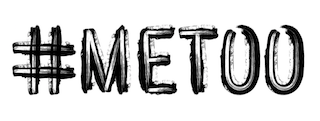 For the most part, I’ve gotten positive feedback on both of my articles regarding the #MeToo movement and the issues that the movement has brought to the forefront and to our national conversation. However, there was one letter sent to the newspaper that did not support my point of view. I did respond to the writer personally via email, but we at River Journal also decided to respond publicly to the concerns in the letter and continue this much-needed dialogue.
For the most part, I’ve gotten positive feedback on both of my articles regarding the #MeToo movement and the issues that the movement has brought to the forefront and to our national conversation. However, there was one letter sent to the newspaper that did not support my point of view. I did respond to the writer personally via email, but we at River Journal also decided to respond publicly to the concerns in the letter and continue this much-needed dialogue.
First, thank you for pointing out my error regarding Ms. Cruz and Ms. Hayek.
Salma Hayek wrote a powerful op-ed about Harvey Weinstein, and that was what I was referring to … Penelope Cruz also made statements about him and the situation with the ongoing abuse, and when I went back to find the information I was looking for, I was careless in my work and confused the two reports/incidents. It was sloppy journalism, and it was changed in the website version. As far as confusing any two Spanish-speaking actors, the truth is that because I watch very little TV, etc., I am just as likely to confuse two Anglo actors if I am not careful. Thank you for correcting it so we can change it online.
As for your concerns – I don’t think we are of such different minds on the issue. I COMPLETELY agree with the movement as it attempts to highlight and put a stop to systemic abuse, and I believe that the predators involved should be punished, namely, people like Mr. Weinstein and Dr. Nassar. I have been vocal for 20 years regarding my opinion on the Clinton/Lewinsky scandal. There was an abuse of power there as well, where career help and support were either implied or explicitly promised. Ms. Lewinsky became a punchline and ended up leaving the country for many years. As recently as a couple of years ago, Hillary Clinton referred to her as a “loony toon” as if that gave the leader of the free world permission to do whatever he wanted to her and toss her to the curb when he was done. A school principal with a student teacher under his charge would have lost his job for such an abuse of power.
So, no, I don’t think the movement is a bad one if it tries to put an end to abuse, whether against women, men, or both (e.g., the Catholic Church scandals that uncovered decades worth of abuse towards boys).
What I think is dangerous, however, is conflating two issues. “Grace,” the woman I referred to in the article, had a bad date. There was no power differential, physical or otherwise (although it can be argued that, because Mr. Ansari is famous, there may be. However, she pursued him at a party, by her own report, and did not seem star struck or willing to “put out” for what he could do for her). To equate a bad date with a lot of miscommunication (likely on both parts) with the trauma of abuse, be that physical, emotional, or sexual, puts the movement in a very bad place. Ansari is, as far as we know, no Weinstein. He has spoken up in favor of the #MeToo movement. Reports indicate that he felt very bad the next day when he was told that Grace had a terrible time.
I still think that teaching young women to stand up for themselves is a good thing —which Grace should have done more clearly if she was uncomfortable (also, she might have gotten dressed if she thought that he was more pushy than she wanted him to be). I think that teaching girls to be safe, such as perhaps not meeting a man at his apartment if you don’t know him, or watching how much you drink, is extremely important.
I’m sorry if my point was blurred. I am certainly not giving a free pass to the Weinsteins of the world or implying that the women abused by him are not victims – they are. And those who turned a blind eye are enablers. But I maintain that the incident I used to highlight my point is a far cry from the abuse and assault that so many have and do suffer when they feel that they can do little or nothing to stop or prevent it.
I welcome debate. It’s the only way we learn.
It should be noted that since the article came out last month and I wrote the above, Monica Lewinsky, whom I referenced as an example, has changed her stance regarding her relationship with President Clinton. While she always maintained that the relationship was consensual, and continues to maintain that point to some degree, she is now realizing, in retrospect, the abuse of power involved, even if she was not physically forced or threatened into compliance. We are having an important discussion as a society about what constitutes consent, what constitutes responsibility, and all the gray areas in between. I’d be happy to see it extend past gender, as women in power can be just as abusive and manipulative as men in power – there are fewer of us, however, and obviously less opportunity. I mention above the Catholic Church’s scandals regarding abuse of power between priests and children, abuse that was covered up and ignored for years. We should be talking about all these things, as well as how we can protect ourselves, what to do if we do feel we are being abused or taken advantage of, and how to make safe and healthy choices as much as possible.
I hope that this discussion continues in our society. We need to decide as a human race what is and is not tolerable, and to accept and respect the differences within the gray areas in the middle. To some a dirty joke is funny, to others it constitutes a hostile work environment. Some people enjoy one night stands and don’t feel “used” or taken advantage of. Others wouldn’t dream of physical contact until the third or fourth date. Those variations in preference are important, but there are also absolute black and whites that we, as a society, have to take a stand against. A person in power, of either gender, using sex or other methods of coercion to reach a goal is never acceptable. Physical assault, sexual or otherwise is never acceptable. Taking advantage of someone’s naïveté, as can be done with children or inexperienced young adults, is not OK. But other than certain absolutes, what people choose to do sexually is a decision between them – my concern, as someone who helps people reach their goals and heal their wounds and function at a higher level, is that people know what they are agreeing to and what they are getting into. This is something that young women often are not clear on, and learning to speak up in all aspects of their lives, be it job, friendships, school, as well as sexual relationships, is vital.
We need to teach girls as they grow into women to be clear and ask questions. I just had a young lady in college complain to me about her hurt when it was revealed that a classmate she was hooking up with was also seeing others. This was not her impression of the situation. I was surprised, because something else she had said a few weeks before, made it clear to me that this young man was not interested or concerned about whether their relationship was exclusive. Sadly, she, 30 years younger than me, and eager for a romantic connection, hadn’t read between the lines as I did when I heard about her social activities. Afraid to appear pushy and scare men away, women often don’t ask questions or verbalize their expectations. We have to get to a point where what comes from the #MeToo movement is the ability and desire to engage in that communication, regardless of age or gender.
Barbara Kapetanakes, Psy.D. practices psychotherapy in Sleepy Hollow.






